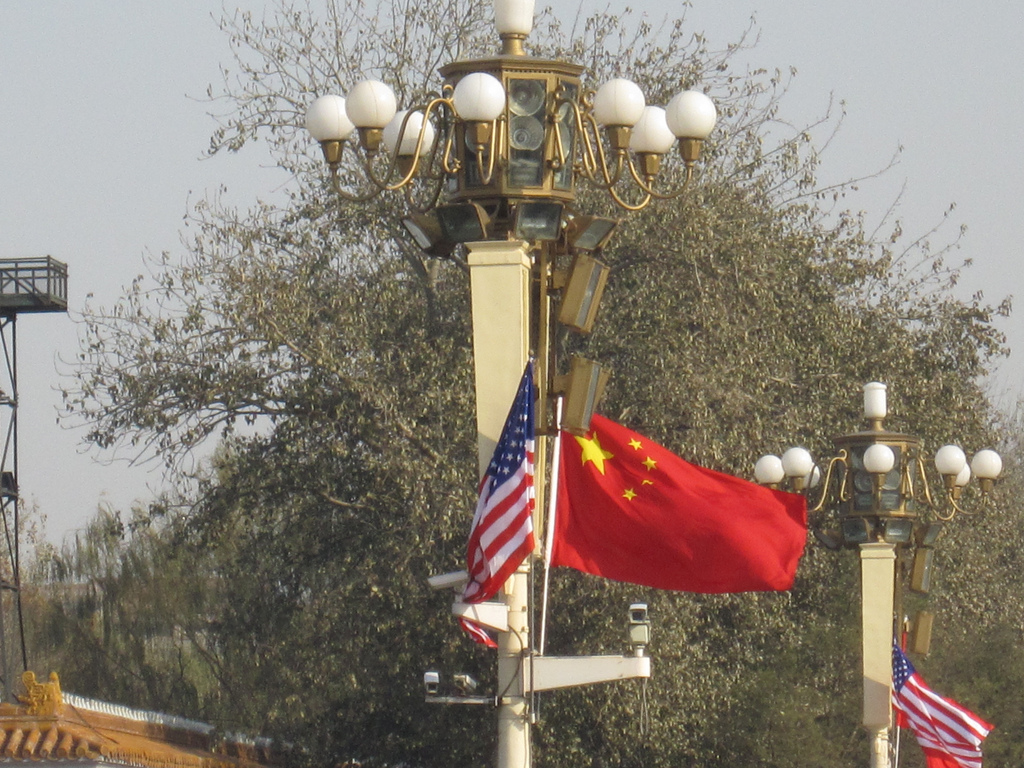WASHINGTON — China has cut its own interest rates, but now it’s hoping the Federal Reserve won’t undo that benefit by lifting U.S. rates.
China’s rate cut is an admission its economy is struggling, say experts. “This is purely a signal that the government acknowledges economic weakness,” said Derek Scissors, Asia economist at the American Enterprise Institute. But now Beijing will be watching Washington.
The Federal Reserve voted to keep interest rates unchanged in its September meeting, worrying about China’s recent financial turbulence and low inflation in the U.S. The Fed meets again next week.
At an International Monetary Fund meeting in Lima earlier this month, China’s Finance Minister, Lou Jiwei, said the U.S. should not raise rates and he urged developed countries, such as the U.S., to increase trade with developing countries.
Qian Wang, senior economist for Asia Pacific at Vanguard, said in an email exchange that the Chinese financial minister’s concern is that underlying growth in the U.S. “could be vulnerable to a Fed hike” at a time when monetary conditions have already been tightened by the much stronger U.S. dollar.
“If the U.S. economic growth loses steam, it could take down the global economy with it,” she said.
Paul J. Sullivan, economics professor at Georgetown University, said that China should be concerned about economic conditions in developed economies — China’s largest trading partners. China’s exports fell 3.7% last month compared to September 2014, in U.S. dollar terms, after a 5.5% in August, according to China’s General Administration of Customs.
The U.S. dollar is likely to appreciate more if the Federal Reserve raises rates, said Charles Collyns, chief economist at the Institute of International Finance. “If the RMB maintains a close relationship with dollar, then the RMB has to rise,” Collyns said in an interview.
“But at the time when China’s economy is not as strong as it used to be, it would raise the question about whether the RMB should weaken against the dollar,” he said. “So it complicates the policy trade-off for China.”
China’s central bank depreciated the yuan USDCNY, -0.0110% by about 2% against the dollar in August, and has been selling U.S. Treasury securities to prevent further depreciation of its currency.
China’s foreign exchange reserves reached their peak at about $4 trillion in August 2014, but started to drop afterwards. August 2015 saw a record decline of nearly $94 billion, according to the China‘s State Administration of Foreign Exchange.
“Using some reserves to stabilize expectations about the currency makes sense,” said David Dollar, an expert on Chinese economy at the Brookings Institution. However, China won’t “go too far in selling reserves.”
“Somewhere around $3 trillion is a safe level for China to hold,” said Dollar.
However, economists disagree on the impact of capital outflows. The Brookings expert pointed out that continuing capital outflow was due to economic fundamentals, such as shrinking investment opportunities and large savings in China.
“Higher interest rates in the U.S. will have some effect, but 25 basis points is too small to have a major effect,” he said.
But Frank Song, economics professor at Hong Kong University, said that capital is already flowing out. If the Federal Reserve raises rates, it will create more uncertainties to China’s policy makers.
Song, in a phone interview, said China’s internal uncertainties included economic reform efforts and an anti-corruption campaign. “Stability is what China’s leadership wishes for,” he said.


